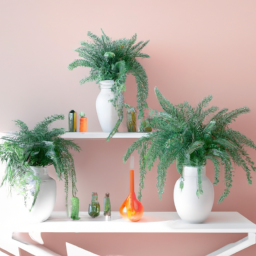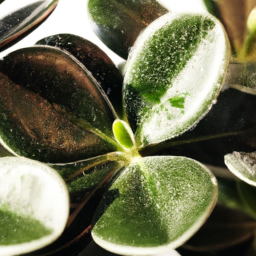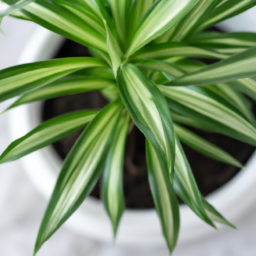
Are you looking to bring a touch of nature into your home? Indoor plants are a great way to do just that, while also providing a host of benefits for both your physical and mental well-being. In this blog post, we will explore the many advantages of having indoor plants and how they can improve your overall quality of life. So, sit back, relax, and let’s dive into the world of indoor plants and their benefits.
Benefits of Indoor Plants for Mental Health
Welcome to our guide on the benefits of indoor plants for mental health. Indoor plants have been known to provide numerous benefits for our overall well-being, including improving our mental health. In this article, we will explore how indoor plants can positively impact our mental health and provide you with some tips on incorporating them into your living space.
Reducing Stress and Anxiety
One of the key benefits of indoor plants for mental health is their ability to reduce stress and anxiety. Studies have shown that being around plants can help lower cortisol levels, which is the hormone responsible for stress. The presence of indoor plants in your home or office can create a calming environment that promotes relaxation and reduces feelings of anxiety.
In addition, caring for indoor plants can also be a therapeutic activity that helps distract your mind from negative thoughts and worries. The act of watering, pruning, and tending to your plants can provide a sense of purpose and accomplishment, which can boost your mood and overall mental well-being.
By incorporating indoor plants into your living space, you can create a peaceful and tranquil atmosphere that promotes relaxation and helps alleviate stress and anxiety.
Improving Air Quality
Another important benefit of indoor plants for mental health is their ability to improve air quality. Indoor plants have been shown to remove toxins and pollutants from the air, such as formaldehyde and benzene, which can have a negative impact on our physical and mental health.
By purifying the air in your home or office, indoor plants can help create a healthier environment that promotes better respiratory health and overall well-being. Breathing in clean air can help improve your mood, increase your energy levels, and enhance your cognitive function, all of which can have a positive impact on your mental health.
By incorporating a variety of indoor plants into your living space, you can enjoy the benefits of improved air quality and create a healthier environment that supports your mental well-being.
Boosting Mood and Productivity
Indoor plants can also help boost your mood and productivity, which can have a positive impact on your mental health. Studies have shown that being around plants can help elevate your mood, increase your energy levels, and improve your focus and concentration.
The presence of indoor plants in your home or office can create a sense of connection to nature, which can help reduce feelings of isolation and loneliness. This connection to nature can also help improve your overall sense of well-being and promote a positive outlook on life.
By incorporating indoor plants into your living space, you can create a vibrant and stimulating environment that boosts your mood, enhances your productivity, and supports your mental health.
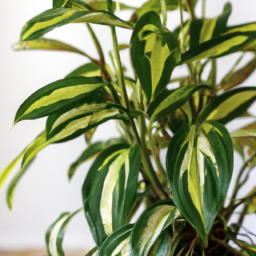
Best Indoor Plants for Air Purification
Welcome to our guide on the best indoor plants for air purification! Indoor plants not only add beauty to your home or office space, but they also have numerous health benefits. One of the most important benefits of indoor plants is their ability to purify the air by removing toxins and pollutants. In this article, we will discuss some of the best indoor plants that are known for their air-purifying properties.
1. Spider Plant
The spider plant, also known as Chlorophytum comosum, is a popular choice for indoor spaces due to its easy care and air-purifying abilities. This plant is known for its ability to remove formaldehyde, xylene, and toluene from the air, making it a great choice for homes and offices. Spider plants are also safe for pets, making them a versatile option for any indoor space.
To care for a spider plant, place it in indirect sunlight and water it regularly. Spider plants thrive in well-draining soil and can tolerate a variety of light conditions. Regularly dusting the leaves of the plant will also help it to better absorb pollutants from the air.
In addition to its air-purifying properties, the spider plant is also known for its ability to produce oxygen at night, making it a great choice for bedrooms or other spaces where air quality is important.
2. Peace Lily
The peace lily, or Spathiphyllum, is another popular choice for indoor spaces due to its elegant white flowers and air-purifying abilities. Peace lilies are known for their ability to remove ammonia, benzene, and formaldehyde from the air, making them a great choice for homes and offices.
To care for a peace lily, place it in indirect sunlight and water it regularly. Peace lilies thrive in well-draining soil and prefer high humidity levels. Regularly misting the leaves of the plant will help to keep it healthy and vibrant.
In addition to its air-purifying properties, the peace lily is also known for its ability to remove mold spores from the air, making it a great choice for allergy sufferers or those with respiratory issues.
3. Snake Plant
The snake plant, or Sansevieria, is a hardy and low-maintenance plant that is known for its air-purifying abilities. Snake plants are known for their ability to remove formaldehyde, benzene, and trichloroethylene from the air, making them a great choice for homes and offices.
To care for a snake plant, place it in indirect sunlight and water it sparingly. Snake plants thrive in well-draining soil and can tolerate low light conditions. Regularly wiping the leaves of the plant with a damp cloth will help to keep them free of dust and pollutants.
In addition to its air-purifying properties, the snake plant is also known for its ability to produce oxygen at night, making it a great choice for bedrooms or other spaces where air quality is important.
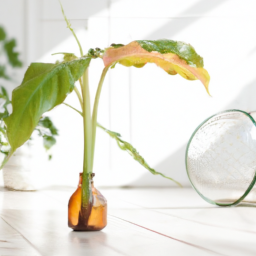
How to Care for Indoor Plants to Maximize Benefits
Indoor plants not only add beauty to your home or workspace but also offer a range of benefits, such as improving air quality, reducing stress, and boosting productivity. To fully enjoy these benefits, it is essential to properly care for your indoor plants. Here are some tips on how to care for indoor plants to maximize their benefits:
1. Provide Adequate Light
One of the most important factors in caring for indoor plants is providing them with adequate light. Different plants have different light requirements, so it is essential to understand the needs of your specific plants. Generally, most indoor plants thrive in bright, indirect light. Place your plants near a window where they can receive plenty of natural light, but be careful not to expose them to direct sunlight, as this can cause their leaves to burn.
If your indoor space lacks natural light, you can supplement with artificial grow lights. LED grow lights are a popular choice for indoor plants as they provide the full spectrum of light needed for plant growth. Be sure to adjust the distance between the lights and your plants according to the specific light requirements of each plant.
Remember to rotate your plants regularly to ensure even growth on all sides. This will prevent your plants from leaning towards the light source and promote a more symmetrical appearance.
2. Water Wisely
Proper watering is crucial for the health of your indoor plants. Overwatering can lead to root rot, while underwatering can cause wilting and leaf drop. The key is to water your plants consistently but not excessively. Before watering, check the soil moisture by sticking your finger about an inch into the soil. If it feels dry, it’s time to water.
Use room temperature water to avoid shocking the roots of your plants. Water your plants thoroughly until water drains out of the bottom of the pot, then empty the saucer to prevent waterlogging. Different plants have different watering needs, so it’s essential to research the specific requirements of each plant in your collection.
During the winter months when indoor air tends to be drier, consider using a humidifier or placing a shallow tray of water near your plants to increase humidity levels. This will help prevent your plants from drying out.
3. Maintain Proper Humidity and Temperature
Indoor plants thrive in environments with moderate humidity levels. Most indoor plants prefer humidity levels between 40-60%. If the air in your home is too dry, consider misting your plants regularly or using a humidifier to increase humidity levels.
Temperature is another important factor to consider when caring for indoor plants. Most indoor plants prefer temperatures between 65-75°F during the day and slightly cooler temperatures at night. Avoid placing your plants near drafts, air vents, or radiators, as extreme temperature fluctuations can stress your plants.
Regularly dusting your plant’s leaves with a damp cloth will help them absorb more light and stay healthy. It’s also a good idea to periodically inspect your plants for pests and diseases and take appropriate action if necessary.
Key Takeaways
Indoor plants are not just a pretty addition to your home decor – they also come with a host of benefits for your health and well-being. Studies have shown that having plants indoors can help purify the air by removing toxins and increasing oxygen levels. This can lead to better respiratory health and a boost in overall mood and productivity.
In addition to their air-purifying qualities, indoor plants can also help reduce stress and anxiety. Simply being around greenery has been shown to have a calming effect on the mind, making them perfect for creating a peaceful and relaxing atmosphere in your home. So next time you’re looking to spruce up your living space, consider adding some indoor plants to not only beautify your home but also improve your health and well-being.
Curious Minds Asked, We Responded. Frequently Asked Questions:
Q1. What are some benefits of having indoor plants?
A1. Indoor plants have numerous benefits, including purifying the air by removing toxins, improving mood and reducing stress, increasing humidity levels, and adding a touch of nature to indoor spaces.
Q2. Which indoor plants are easy to care for?
A2. Some easy-to-care-for indoor plants include pothos, snake plants, spider plants, peace lilies, and succulents. These plants require minimal maintenance and are perfect for beginners.
Q3. How do indoor plants improve air quality?
A3. Indoor plants improve air quality by absorbing carbon dioxide and releasing oxygen during photosynthesis. They also help remove harmful toxins such as formaldehyde, benzene, and trichloroethylene from the air.
Q4. Can indoor plants help reduce stress and improve mood?
A4. Yes, indoor plants have been shown to reduce stress levels and improve mood. The presence of greenery and nature indoors can have a calming effect on individuals, leading to a more relaxed and positive environment.
Q5. What are some tips for caring for indoor plants?
A5. Some tips for caring for indoor plants include providing adequate sunlight, watering them regularly but not overwatering, ensuring proper drainage, and occasionally fertilizing them. It’s also important to keep an eye out for pests and diseases and address them promptly.
Dr. Olivia Green is a botanist with over two decades of experience in indoor plant cultivation. She holds a Ph.D. in Plant Biology and has dedicated her career to researching plant behavior in controlled environments. Dr. Green is passionate about helping plant enthusiasts master the art of indoor gardening through her extensive knowledge and practical insights.

